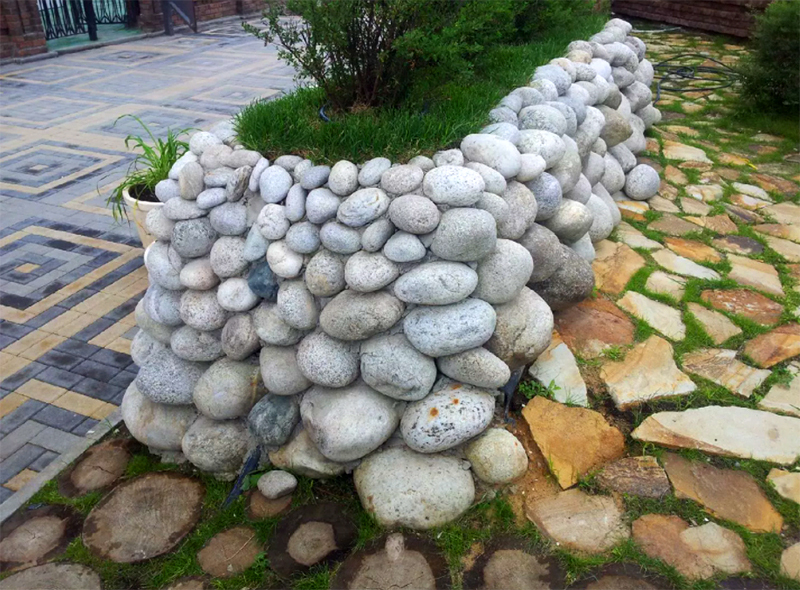Any bare metal over time accumulates rust. The harsh operating conditions, the faster it happens. Home plumbing, parts of the car body, instruments, tableware - all this is subject to corrosion. If the time to notice the red spot can be quite easy to deal with them with home remedies, without the serious chemistry. This material Housechief.ru will tell you how to remove rust from metal surfaces.

Read article
- 1 Why even a little rust can be a problem
- 2 Than it is possible to remove rust from metal: mechanical method
- 3 As a heat treatment to remove rust
- 4 The means of chemical can remove rust from metal
- 4.1 How to get rid of the rust on the metal using zinc chloride: Master Class
- 4.2 Sulfuric and hydrochloric acids as a means of combating corrosion
- 4.3 The use of oxalic acid and lactic acid
- 5 Folk remedies to combat rust
- 5.1 How to remove rust from metal surfaces using a conventional potato
- 5.2 The wash rust from metal: lemon secret
- 5.3 How to clean rust from metal by baking soda
- 5.4 Vinegar against rust spots
- 5.5 How to remove rust from metal in the home hydrogen peroxide
- 6 Original means for removing rust from metal
- 6.1 Coca-Cola - a panacea
- 6.2 Ketchup purifier rust from metal
- 7 Methodology home electrolysis
Why even a little rust can be a problem
Once a person has learned to make and use the iron ore, he began to look for ways to keep the metal from corrosion. More Gerodot in the products described in detail iron coating method of the protective layer of tin, and the archaeological site of more ancient cultural layers suggest metal products with protection practice using grease.

So what happens with the hard and durable metal, why it eventually becomes loose and fragile? All the matter in oxygen. It is he who causes a chemical reaction of oxidation, gradually taking over more and more deep layers. Stop the reaction can be only one way: cover the subject with a protective layerWhich does not allow the direct contact of the metal with the air. If this is not done, the rust will grow from a small speck in the great plague, and then completely transformed into the hole. Particularly affected by such a process of thin sheet metal items: sanitary ware, crockery, various household containers.

Can we prevent this process? Gentle care, protective coating and timely lubrication - all these simple preventive measures. And what if the corrosion is still manifested?
Than it is possible to remove rust from metal: mechanical method
Let's start with the most basic: the mechanical cleaning.

Purification by metal rust can pass manually sandpaper, or by household tools: sander, Grinder, Drills or Bulgarian with a nozzle, sandblaster. When it comes to large parts of building structures - this is the right choice of a method of combating rzhoy.

Important! Opening the mechanical cleaning of the pure metal layer is required to cover it is then suitably primer and paint or other protective coating, otherwise corrosion will proceed immediately to its destruction.
As a heat treatment to remove rust
Corroded metal layers can be simply burn out using an acetylene torch. The technique is quite simple, but it has a drawback: it is impossible to be completely sure that all the affected areas reliably processed.

The means of chemical can remove rust from metal
Chemists invention succeeded in different formulations to successfully combat the corrosion of the metal.

We are not looking for easy ways, so look at the arsenal of improvised chemistry - which can come in handy?
How to get rid of the rust on the metal using zinc chloride: Master Class
To protect a metal part against corrosion damage, it can be covered by a layer of zinc chloride. Make it quite possible in the home:
| Illustration | Description of the action |
 | For work required soldering acid, zinc, which can get out of rechargeable batteries, a thin piece of foam rubber and a charger or a car battery. |
 | Zinc wrap in foam, the cover lock it in the wire or thread, leaving the contact piece. |
 | In the open portion of zinc preform secure positive contact charger. |
 | Less is mounted directly on the details, which you will handle |
 | Dip soldering foam wrapper acid. |
 | Apply zinc coating on the workpiece, especially carefully when processing difficult places. |
 | Please note that the testimony of the charger will decrease as the drying. |
Attention! Work with soldering acid should be very careful, it is very corrosive. Protect your hands with gloves.
Sulfuric and hydrochloric acids as a means of combating corrosion
Rust removal from the metal in the home with small metal objects can be carried out with hydrochloric or sulfuric acid. An important condition in this process - the use of an inhibitor - hexamine.


The use of oxalic acid and lactic acid
With toxic oxalic acid is necessary to work very carefully, without fail, use respiratory protection, goggles and gloves. Before pickling acid product should be washed with soap and water and dried. For processing in a glass of water was dissolved 5.5 teaspoons acid. Item left in this solution for 30 minutes.

If your arsenal is lactic acid - it is diluted in vaseline at a ratio of 1 to 2. The resulting liquid for removing rust from metal is applied to the damaged area, and after dissolving stains removed napkin with vaseline.
Folk remedies to combat rust
Neither of each house do not just waiting in the wings zinc, sulfuric acid or oxalic acid. It does not matter, there are other effective methods of dealing with a touch of red, with something of the essential ingredients is sure to have at home.
How to remove rust from metal surfaces using a conventional potato
The scrub the rust with crockery? This recipe is like the hosts, who are tired of fighting with rzhoy in the kitchen baking.

Large potatoes should be cut in half, dip the slices in salt and rub this "tool" rusty marks on the dishes. The secret to the effectiveness of this method, all in the same oxalic acid, which is contained in your favorite vegetable. The salt works as an abrasive, and acid solution rust.
The wash rust from metal: lemon secret
Lemon acid used in baked goods and homemade preserves. it will help in the fight against corrosion on kitchen knives. The liquid for removing rust from metal is prepared from water and citric acid powder.

Lower the knife into the solution at night and in the morning just rinse it with clean water.
How to clean rust from metal by baking soda
Homepage plumbing treated paste of baking soda and water. It should leave the mixture on the rusty ground for half an hour, then clean synthetic brush and rinse with plain water.

Vinegar against rust spots
If you have not yet decided what to remove rust from metal, note the vinegar. If you have already started a bundle surface smooth out a first place a metal brush, and then immerse the product in vinegar or put on the damaged place a cloth soaked in it. contact time - from 12 hours to a full day.

After processing - washing and drying.
How to remove rust from metal in the home hydrogen peroxide
What more effective rust corrodes? Excellent variant - mixture of hydrogen peroxide and ammonia. 1 part of peroxide is mixed with 2 parts of ammonia. This liquid is treated with all the damaged areas and leave for fifteen minutes. After rinsing with water. This work is very difficult - you need to protect eyes and lungs.

Original means for removing rust from metal
There are other options for dealing with rzhoy, which can be used very unexpected products: Coca cola and ketchup.
Coca-Cola - a panacea
How to remove rust from chrome bike or a car?

There are people who are suspicious of this method, but it is better to see once, that's a vivid example:
Ketchup purifier rust from metal
Ketchup or tomato juice can cope with a small plaque on the cutlery. Spread the sauce and leave them for half an hour. After a wash and wipe dry.

Methodology home electrolysis
At the end of our material a few words about home electrolysis. This is not the easiest method to combat corrosion, but if you particularly treasure the metal article, it is useful to you. It is used by collectors of rare coins and treasure hunters.

Electrolyte perfectly removes traces of rust even in the most difficult places. You do not run the risk of overexposing or damage metal during processing. See how it's done:
Whichever method you from above choose, remember: without further protection refined metal all your efforts are in vain. So think how to handle the product after the removal of rust, no more to return to this question.
If you have any questions on the topic - ask them in the comments!



